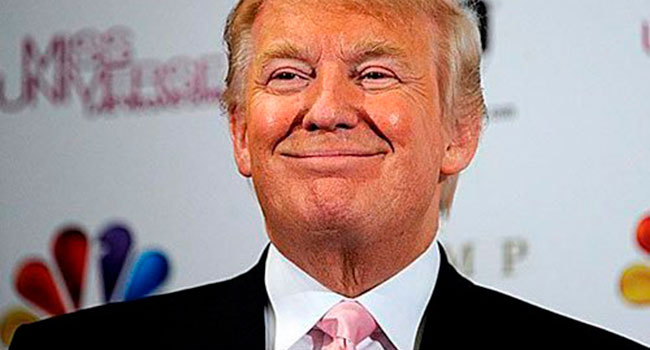 Many people have criticized Donald Trump’s actions in recent months, yet he still received more votes than any losing presidential candidate in American history. Many clearly think he’s a great leader.
Many people have criticized Donald Trump’s actions in recent months, yet he still received more votes than any losing presidential candidate in American history. Many clearly think he’s a great leader.
Perhaps Trump is the Vince Lombardi of presidents. The legendary football coach is known for having said, “Winning isn’t everything. It’s the only thing.” Lombardi was exceptionally tough on his players and he won a lot of football games.
Many idolize Lombardi and his approach to sports and life: Be uncompromising. Win, whatever it takes.
What most don’t know is that near the end of his life, Lombardi expressed regret for what he said. “I meant the effort,” he explained. “I meant having a goal. I sure didn’t mean for people to crush human values and morality.”
I remember being confused about what real leadership is. Through my years of teaching, however, I’ve learned that the key to a productive classroom is treating people with respect, not instilling fear in them.
Maybe the reason we have so many terrible leaders in politics, in business and even in our families is because we don’t know what good leadership looks like. What may be even more dangerous is that we have no idea how to identify a terrible leader.
Stephen Covey, the author of The 7 Habits of Highly Effective People, tells us that first and foremost, a good leader has a solid moral character and a sense of integrity. A leader takes a proactive approach to life.
Covey states, “Highly proactive people don’t blame circumstances or conditions, or conditioning for their behaviour. Their behaviour is a product of their own conscious choice.”
Good leaders are responsible. They respect themselves and others, they listen, they celebrate differences of opinion and they understand that winning means creating circumstances where everyone benefits.
Poor leaders may reach short-term goals but they leave a path of destruction in their wake.
This has been a major problem in the world. In an effort to create political and economic stability in developing countries, powerful nations have put in place dictators with no moral character, men who would steal and murder in order to maintain control. We really shouldn’t be surprised when, as Malcolm X said, “The chickens come home to roost.”
The vast majority of people live principled lives and want their leaders to do the same. The problem is that some people are selfish, manipulative and lack empathy. They can put on a good show for a while but they always expose their true colours eventually.
Many mental health professionals predicted Trump would come unhinged if his leadership was challenged. They have been studying his behaviour for years and noted that his actions are consistent with those of a person who is extremely egocentric, lacks empathy, can’t accept criticism and has to be in control. When things don’t go well for these people, they lash out at others and throw temper tantrums. They may be good authoritarians but authoritarianism isn’t good leadership.
It’s important to understand not only the characteristics of a high-conflict personality, we need to understand the manipulative tactics they use when they’re trying to get what they want. We also need to have structures in place to hold them accountable and remove them from their positions when necessary.
Manipulators take advantage of our normal human tendency to give people the benefit of the doubt and to forgive. They also almost never change.
Donald Trump provided the world with an amazing case study. Hopefully, we’ve learned our lesson.
Troy Media columnist Gerry Chidiac is an award-winning high school teacher specializing in languages, genocide studies and work with at-risk students.
For interview requests, click here. You must be a Troy Media Marketplace media subscriber to access our Sourcebook.
The views, opinions and positions expressed by columnists and contributors are the author’s alone. They do not inherently or expressly reflect the views, opinions and/or positions of our publication.


